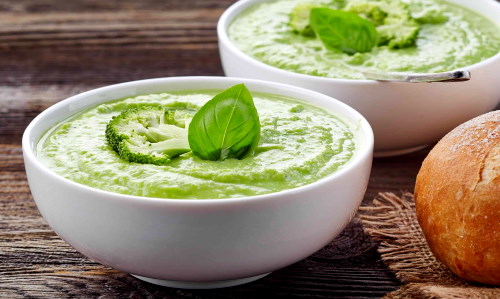
Can Babies Eat Cheese?
Cheese is a diary product obtained from milk. It contains proteins and fat from different types of milk: goats’, sheep’s, cows’ or buffalo’s. During the production of cheese, the milk is acidified, and by adding enzymes of rennet, takes place the coagulation. There are over a thousand different types of cheese, their styles, textures and flavors depending on the origin of the milk, on the butterfat content, on the bacteria, on the processing, whether they have been pasteurized and on how long they have been aged for. Cheese can be “spiced up” with herbs, flavoring agents, and spices such as black pepper, garlic, chives or even fruits, like cranberries.
Goat Cheese
Goats’ milk and cow’s milk are similar in their overall fat contents, but goats’ milk cheese has a typical tart flavor, due to the higher proportion of medium-chain fatty acids in goats’ milk. Goat cheese is one of the earliest made dairy products.
Cheese is rich in protein, calcium, magnesium, zinc, phosphorus, vitamins A, B2 and B12.

Broccoli, Potato and Cheese Purée
Can Babies Eat Cheese at 6 Months?
Most parents give their babies cheese as soon as they start eating solids, starting at around 6 months old until 10 months. However if you suspect your baby might have allergy to dairy products, you should delay the process of giving cheese to your baby. Chocking is a possible hazard, so you should chop the cheese into small pieces and offer your baby it in these tiny forms.
Is Cheese Bad For Babies?
Cheese contributes to a healthy diet for babies, but they can eat only pasteurized full- fat cheese. Unpasteurized milk raises the risk of listeria. Cottage cheese can be given to babies as finger food. Mozzarella or non-sharp cheddar are types of cheese you can offer to your baby shredded or cut into small cubes.
How Much Cheese Can a Baby Have?
You should limit dairy and dairy products to one serving per day, and the dosage should not be bigger than 42g of hard cheese for babies.
Potato Broccoli and Laughing Cow Cheese Balls Recipe (+12 Months)
Ingredients for 6 small balls: 1 potato, 50g broccoli, ½ fresh new onion, 1 egg yolk, 1 laughing cow cheese portion, 1 tbsp flour, 1 tsp olive oil.
Wash the broccoli, cut and keep the peaks of it. Wash, peel and cut the potato into thin slices. Wash the onion, cut and keep only the white part of it. Put the slices of potatoes on one half of a steamer basket, the broccoli on the other half, and put the onion in the boiling water under the steam basket. Cook for 11 minutes. Put the cooked potatoes in a bowl, and crush them with a fork together with the egg yolk and the flour. Chop the broccoli with the onion and add it to the dough together with the laughing cow cheese, until you get a homogeneous paste. Flour your hands, take the paste and form the balls. Heat the oil in a pan and once hot, put the vegetable balls in, and cook them 3 minutes on each side. Serve them warm, but not hot!
FAQ
What is cheese?
Cheese is a diary product obtained from milk. It contains proteins and fat from different types of milk: goats’, sheep’s, cows’ or buffalo’s.
How healthy is cheese?
Cheese is rich in protein, calcium, magnesium, zinc, phosphorus, vitamins A, B2 and B12.
When can you start giving cheese to your baby?
Most parents give their babies cheese as soon as they start eating solids, starting at around 6 months old until 10 months.
The risks of giving cheese to your baby?
Chocking is a possible hazard, so you should chop the cheese into small pieces and offer your baby it in these tiny forms. If you suspect a diary allergy, then you should delay the process of giving cheese to your baby.



